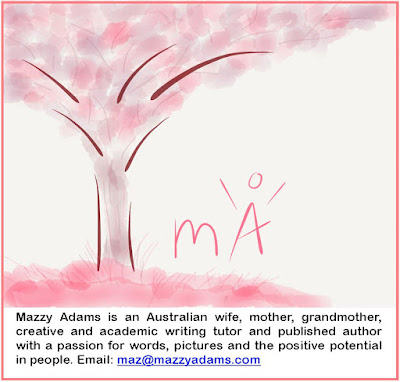I’m scared.
Inside it is every letter I ever wrote home from boarding
school – five years’ worth. And honestly, I don’t want to go back. I know,
though, that I need to do it. The after-effects of those five years have been
large in my life and I still have
dreams where I’m back in boarding, usually with one or more kids in tow,
attending maths class in our freezing cold Himalayan mountain classrooms and
getting into trouble for not doing my homework. (At some point in those dreams,
I say to myself, “Hang on. I’ve done a whole university degree. I don’t have to
be here, doing maths with cold fingers.” At that point I wake up and lie in the
dark for a bit.)
I know I’m going to have to go there and open that box,
though, so I have a plan. Next year is the year of the memoir: The Year I Read
My Boarding School Letters.
But I’m still scared. I’m scared of the emotions that will
rear their heads, of the things that I’ve ‘sorted out’ becoming ‘unsorted’. Basically,
I’m scared of feeling, again, like I felt at boarding.
This year I’ve been teaching a ‘Write Your Memoir’ course
with another writer. Last week in our session I handed out a sheet with a list
of tips on Managing Your Emotions While You Write Your Memoir. Anytime we write
about things that have happened to us, we are going to be dealing with
emotions. Some, like my boarding school letters, we know will stir up old angers and fears. Others may pop up
unexpectedly, right out of the blue. Either way, we need to know how to deal
with it when it happens, so here are the tips I gave my class – tips that I’ll
be dedicated to sticking to myself next year.
·
Keep a journal/blurt book. Use it to write down whatever you want – even if you’d never tell
another soul. Crying and punching pillows is also allowed.
·
Find a support person - someone to talk to. The right person is a gift. The wrong person may be a curse. If you
really can’t find anyone, consider booking in to see a professional counsellor.
·
Limit your writing time to a manageable amount. Putting boundaries around the time you’ll spend thinking about hard
things each day or each week can help.
·
Stay healthy. Eat your vegies, drink
enough water and make sure you exercise. It dissipates stress and creates that
lovely serotonin and dopamine in our brains.
·
Find a mindfulness/meditation practice. Pick
one that works for you and do it every day. It may be prayer, relaxation,
playing music or colouring in.
·
Breathe deeply for two minutes every day. It increases oxygen and gets rid of
stress.
·
Stock up on funny DVDs and books to give you a hit of humour. If you’re laughing, it’s hard to be sad.
·
Realise when you’re ‘kicking the cat’.
If the people around you are suffering because you’re passing on your stress
without realizing it, stop and take care of your own feelings.
·
Take time off if you need to. I can’t
believe I would ever tell anyone to stop writing. But if you need to, you need
to. (On the other hand, you could move on to the next tip instead…)
·
Balance out the hard memories with the good memories. Follow up writing about the hard stuff with something that’s more
positive.
·
Make a list of ‘rewards’. Write down ten
things you’d like to do but haven’t gotten around to yet. Reward yourself with
one of them every time you do a piece of difficult emotional writing.
·
Anything else that works for you. You
probably know what it is, because you’ve been doing it for years already.
Cecily Paterson is a novelist for young teen girls, based in New South Wales. She blogs at www.cecilypaterson.com
Cecily Paterson is a novelist for young teen girls, based in New South Wales. She blogs at www.cecilypaterson.com















